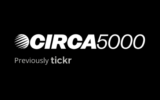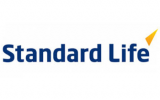Ethical Investments
See below selected ethical investment fund options. Alternatively read our latest blog on investing ethically in 2025.

No bad assets. Just investing in the things that help us thrive: Energy, Water, Food, Health, Education and Cybersecurity. With ready-made portfolios, it’s easier than ever to get started. So you can build wealth for the future by investing for the long term, on your terms
Ethical Savings Accounts
Investing In Ethical Investment Funds
Investing in ethical funds has become increasingly popular with investors looking for investment returns from socially responsible investment (SRI).
Funds can offer significant growth opportunties through investment in companies operating in areas like renewable energy, environmentally friendly transport and engaged in sustainable practices.
The term “ethical investment” however means different things to different people – often terms such as ethical, sustainable, socially responsible (SRI) are terms used to describe this type of investing.
What is ethical investing?
When it comes to choosing an investment there are different “shades of green”. For example a “dark green” approach adopted by a fund manager may see the negative screening or exclusion of companies involved in sectors such as armaments and tobacco.
Whilst a “light green” approach may see fund managers invest in companies that are working towards more ethical practices such as waste disposal policy where a positive screening approach is used.
What is ESG investing?
ESG stands for environmental, social governance and is used by fund managers when assessing which companies to invest in.
What is SRI investing?
SRI stands for socially responsible investment and according to the UK Sustainable Investment & Finance Association (UKSIF) this where investment managers “Seek to promote responsible investment and other forms of finance that support sustainable economic development, enhance quality of life and safeguard the environment”.
What is Sustainable investing?
Sustainable investing is where companies are selected that make a positive impact in the areas in which they operate and the wider world.
This could range from green technology to social initiatives in developing countries. It’s less restrictive than ethical investing as it allows for the fact that companies are often neither all good or all bad – such as oil companies that invest in clean energy.





